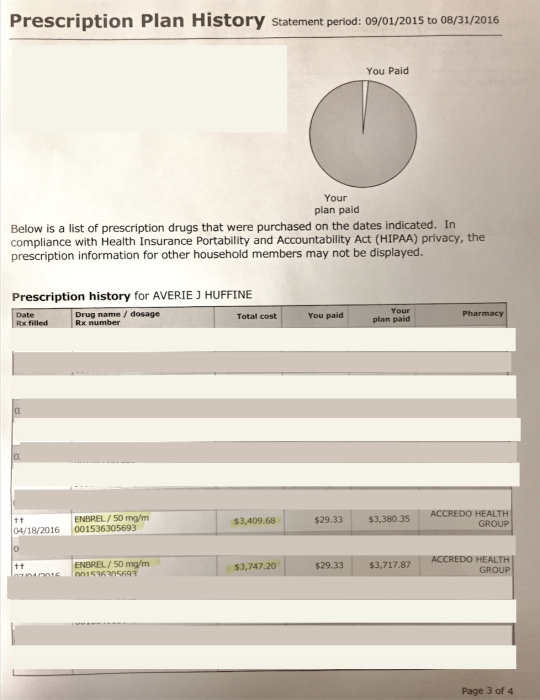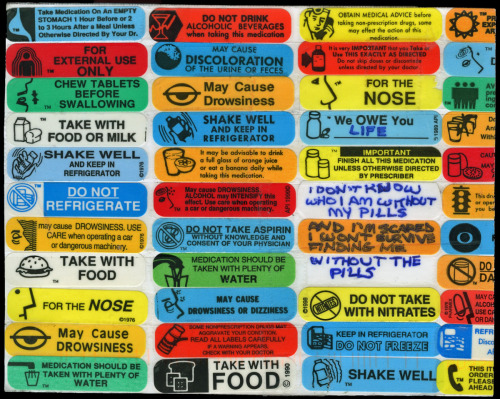#prescription drugs
[For more analysis and commentary, please join me at robertreich.substack.com]
Why the hell are Democrats keeping your drug prices high?
Excuse me but I have to vent.
Three House Democrats and one Democratic senator are now blocking a proposal to allow Medicare to negotiate drug prices. Medicare is such a big purchaser of drugs that it has the bargaining leverage to cut drug prices for everyone — if allowed to do so. This would save at least $450 billion over the next 10 yearsandsignificantly lower prescription drug prices.
But four Democrats are standing in the way.
Before I get to why they’re doing this, let me identify them. In the House: Scott Peters (whose district includes San Diego), Kurt Schrader (Oregon’s central coast), and Kathleen Rice (central and southern Nassau County on Long Island).
And in the Senate: Kyrsten Sinema (Arizona).
Okay, so why are these four Democrats blocking this measure?
Not because this policy is unpopular with the public. To the contrary, 88 percent of voters favor allowing the federal government to negotiate lower drug prices, including 77 percent of Republicans.
In fact, at least 90 percent of these four lawmakers’ own constituents support allowing Medicare to negotiate drug prices. Get this: The idea is so popular that both Kathleen Rice and Kyrsten Sinema actively campaigned on it.
And not because the pharmaceutical industry needs extra money in order to continue to generate new drugs. Taxpayers already fund much of its basic research through the National Institutes of Health. Also bear in mind that a big portion of the costs of bringing a drug to market goes into advertising and marketing — which shouldn’t even be allowed for prescription drugs (and isn’t in most other rich countries, and wasn’t in the US until Big Pharma lobbied for the law to change).
Oh, and pharmaceutical firms have been overflowing with so much cash they’ve been buying back their own shares of stock.
In other words, allowing Medicare to negotiate lower drug prices should be a no-brainer.
So what gives? The question should be who gives. Follow the money.
From 2019 to 2020, Kyrsten Sinema received over $120,000 in Big Pharma contributions, even though she’s not up for re-election until 2024. Throughout her political career, she’s taken over half a million dollars from Pharma PACs and executives. Just before Sinema officially came out publicly against allowing Medicare to negotiate drug prices, a group bankrolled by Big Pharma began running TV and digital ads and sending mailers praising her for “fighting as an independent voice.”
If you think this was a coincidence, I have a bridge in Brooklyn to sell you.
Scott Peters, meanwhile, happens to be the House’s single biggest recipient of Big Pharma campaign cash in the 2022 election cycle so far. Since being elected in 2012, Peters has socked away over $860,000 from Big Pharma. The day after his letter to House Speaker Nancy Pelosi opposing using Medicare to negotiate lower drug prices was published in May 2021, Peters began receiving thousands of donations from executives at pharmaceutical companies and the industry’s powerful lobbying group.
Another coincidence? P-l-e-a-s-e.
Kurt Schrader has raked in nearly $615,000 from Big Pharma since taking office in 2008. This election cycle he’s already got $24,500 from Pharma PACS, the second most of any industry donating to him. One of former his top aides left his office earlier this year and is now lobbying for Big Pharma. According to ethics disclosures, the former aide’s lobbying efforts focus on … guess what? Drug pricing.
The third House Democrat, Kathleen Rice, has received over $84,000 from Big Pharma.
The grand total of Big Pharma cash going to these four lawmakers: over $2 million. When you consider the billions that Big Pharma will rake in for keeping drug prices high, this is a small potatoes for them. You might even call it a great investment.
But it’s a huge cost for the rest of us.
The measure isn’t being blocked solely because these four Democrats oppose it. No Republican members of Congress are in support.
But it does seem odd that Democrats would stand in the way of this sort of reform, rebuffing their own president and party — and rejecting the overwhelming preference of voters, including their own constituents — to tank a policy that they themselves campaigned on. I mean, what’s the Democratic Party for if it won’t reduce drug prices for average people? Why were these four Democrats elected in the first place?
Sometimes I worry that pointing out this sort of corruption (and it is a form of corruption) will make people even more cynical than they already are about American politics, resulting in a kind of fatalism or resignation that causes many to give up — and thereby cede the entirety of our democracy to the moneyed interests. My hope is just the opposite: that when people hear about this sort of thing, they’re outraged enough to become even more politically active.
In my experience spanning fifty years of American politics — from interning for Senator Bobby Kennedy in 1967 to serving as secretary of labor in the Clinton administration to advising President Obama — most of the elected lawmakers I’ve dealt with sincerely want to do the right thing. Some don’t feel they can do the right thing if they want to be reelected, and confuse means and ends. A very few are on the take.
By which I mean to say that the situation is hardly hopeless. I refuse to give up on democracy. And I won’t give up on the Democratic Party. But I’m only going to fight for candidates from the Democratic side of the Democratic Party.
What can you do? For one thing, contact your members of Congress and tell them that the first step in getting big money out of politics is to support the Freedom to Vote Act. (You might put in an extra call to Joe Manchin’s office and say you expect him to deliver 10 Republican senators’ votes for this bill — which he helped author — or else agree to reform the filibuster to let voting rights bills be enacted with a bare majority.)
Here’s something else you can do: If you happen to be a constituent of one of these four Democrats, don’t vote for them when they’re up for reelection. Make sure they’re primaried, and then vote in the Democratic primaries for true public servants — who care more about advancing the public good than protecting private profits.
Post link
Yesterday was National Rheumatoid Arthritis Awareness Day. It’s a bit of a pointless holiday, and I didn’t even know it existed until about 3 hours ago - I’m guessing due to the fact that the Arthritis Foundation is shit, has a 1 star rating on Charity Navigator, and has been accused of misusing funds in the past. So….they probably haven’t had time to roll out an advertising campaign.
In any case, if you didn’t know, RA is an autoimmune disease in which the body’s immune system is a worthless idiot and attacks your body’s own soft and joint tissues, and can potentially render them useless through damage and deterioration.
I have RA. But I am lucky. My RA was diagnosed very early and I had it treated very aggressively.
I am also lucky because I have insurance that helps offset the cost of my revoltingly, ridiculously, disgustingly expensive medication. One month of Enbrel costs anywhere between $3,400 and $3,800. See?

It’s such an expensive medication that I actually have to use two insurance plans to afford it. Which means, if I did not have insurance, I’d be paying approximately $45,000 per year simply to stay alive.
And that is for justone of my medications, as you can tell from the above photo, where I’ve blocked out all the other medications I am also required to take to stay alive. Paying for Enbrel out of pocket would leave me unable to afford rent, food, or clothing - other things which are also required to stay alive.
Though I am currently fortunate enough to have a job that provides me with healthcare, I’ve been without insurance in the past. Back before the Affordable Care Act, I was unable to stay on my parents’ plan when I graduated and then was constantly denied coverage due to my pre-existing conditions. I basically roamed around LA, terrified of getting into a catastrophic accident while simultaneously attempting to treat pneumonia in the back of a CVS.
Obamacare is not without its flaws, I acknowledge that. But if your garbage disposal is broken, you don’t burn down your house and start over - you fix the fucking garbage disposal. So in honor of National RA Awareness Day, which is, as we’ve established, a real thing - please consider writing or calling your representatives (especially Paul Ryan) and telling them that repealing ACA without a replacement would be disastrous. It is important, and saving lives, and making it so people don’t have to choose between bankruptcy or having their immune systems kill their own bodies.
.
Contact Your Representatives: http://www.house.gov/representatives/find/
Contact Your Senators: https://www.senate.gov/senators/contact/
Contact Paul Ryan: https://paulryan.house.gov/contact/
Study: Rise of Psychoactive Substance Use Among Older Adults Poses Risks
Drug and alcohol use among older Americans has increased sharply over the past decade, as Baby Boomers use psychoactive substances at a higher rate than previous generations. This creates a growing public health problem: rising numbers of older adults at risk for harm from drug use, including substance use disorders. Older adults are often more susceptible to the harms of psychoactive drug use due to age-associated physiological changes, social factors such as increased isolation, increases in comorbidity and the use of medications that may interact with a range of drugs.
Benjamin Han, MD, MPH, is a geriatrician, addiction medicine physician and clinician-researcher in the Division of Geriatrics, Gerontology and Palliative Care in the Department of Medicine at UC San Diego School of Medicine. Along with UC San Diego medical student Jason Leddy, UC San Diego undergraduate student Francisco Lopez and Joseph J. Palamar, PhD, an associate professor at the New York University Langone Medical Center, he recently published a new study in JAMA Ophthalmology that found an association between severe visual impairment in older adults and a higher prevalence of cannabis use as well as substance use disorder, including alcohol use disorder and nicotine dependence.
In this Q & A, we’ve asked Han to break down some key points of this study:
Question: How prevalent is the issue of older adults using psychoactive substances and how does this compare to substance use in other age groups?
Answer: While psychoactive substance use is lower among older adults compared to younger adults, its use has increased sharply among people age 65 and older. Past-year cannabis use has increased from 0.4% in 2006 to 4.2% in 2018 among people age 65 and older, according to an analysis of the National Survey on Drug Use and Health data that I published with Dr. Palamar in 2020. Additionally, a study I conducted along with Dr. Palamar and Dr. Alison Moore, chief of Division of Geriatrics, Gerontology and Palliative Care here at UC San Diego found sharp increases in unhealthy alcohol use.
Q: What types of health or mental health issues are older adults using drugs for?
A: There are many reasons older adults use psychoactive substances, including to treat undertreated chronic symptoms such as insomnia, chronic pain and anxiety. It is also important to note that increasing isolation can be a risk factor for risky psychoactive substance use, which is relevant to this paper because vision impairment, particularly among older adults, can increase isolation, lead to significant psychological stress and loss of independence.
Q: Has the COVID-19 pandemic caused an increase in use?
A: The pandemic has been particularly difficult for many older adults, often increasing their isolation. Some studies suggest that drug use and drug-related overdose deaths have increased among older individuals during the pandemic, but data on this currently remains limited.
Q: What signs should loved ones and physicians be on the lookout for?
A: Due to physiological changes due to aging, the presence of chronic disease and increased use of prescription medications, older adults — especially those with impairment (such as visual impairments) — are at risk for harm related to use of psychoactive substance use. Intoxication can potentially lead to marked deficits in coordination, leading to an increased risk of injury or worsening of chronic diseases. Unhealthy psychoactive drug use can often be difficult to detect among older adults, so it’s important that clinicians ask all of their older patients about drug and alcohol use.
— Corey Levitan
Post link
+17402802225


+17402802225

+17402802225

![[For more analysis and commentary, please join me at robertreich.substack.com]Why the hell are Democ [For more analysis and commentary, please join me at robertreich.substack.com]Why the hell are Democ](https://64.media.tumblr.com/97bc765ec452cddc045261abaf31d07e/ff63c54cbbacd9fb-ef/s500x750/3b0825b22e49b5533b7720f4b4db4aa099702ec7.jpg)

